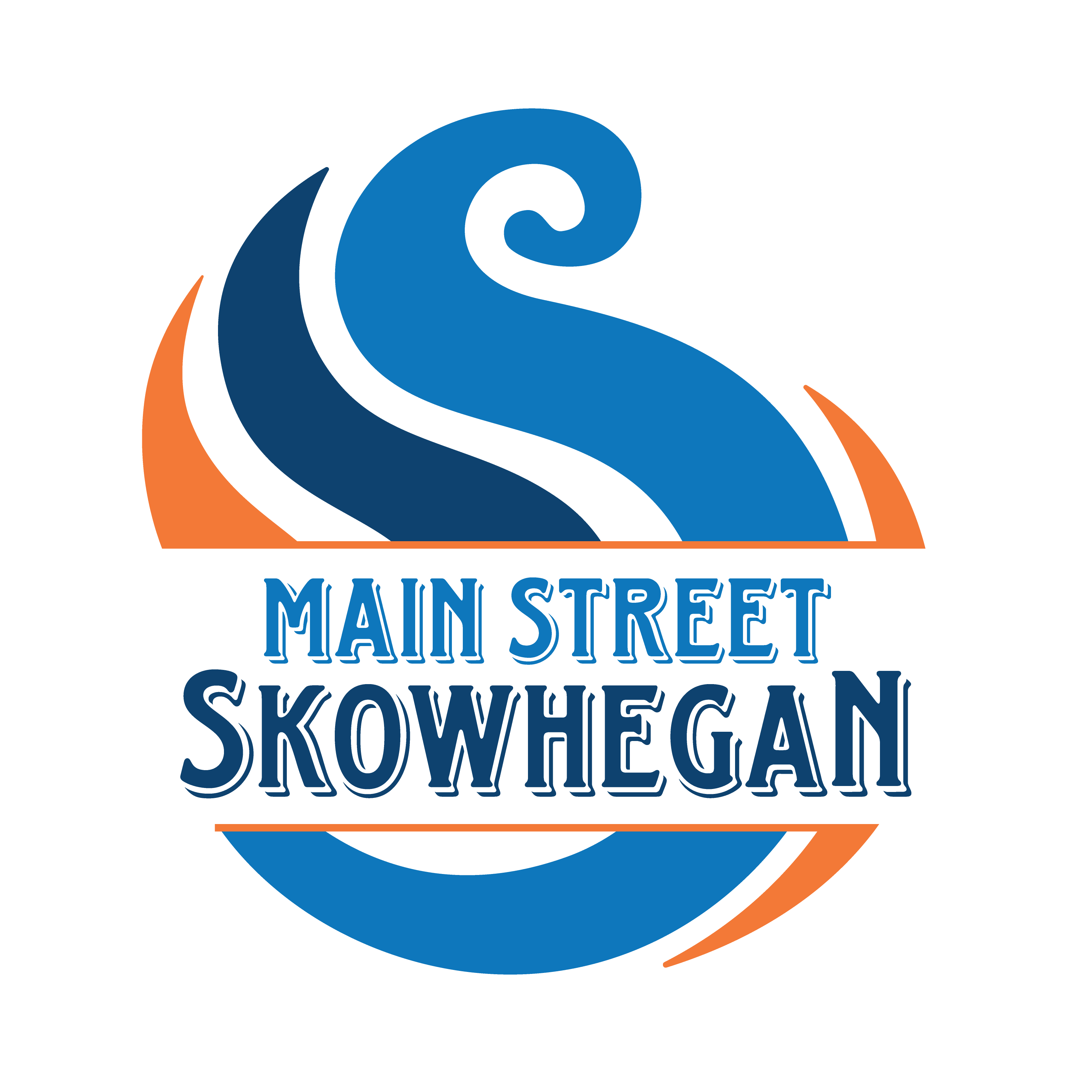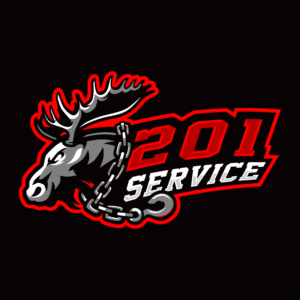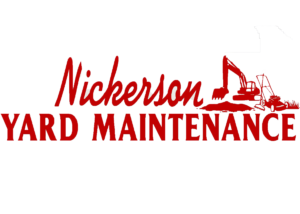Skills Inc.
“They Are Us”: Developmentally Disabled at Skills Thrive on Working, Giving, Helping
By Maria Landry
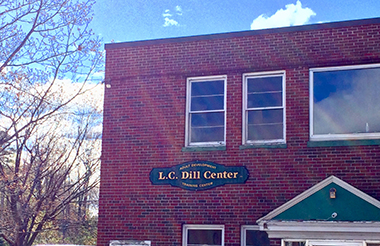 Walk into the L.C. Dill Center in downtown Skowhegan on any given weekday, and you’ll find a hubbub of activity as workers sort piles of donations, cut old clothes into rags to sell, prepare for volunteer work with Meals on Wheels, and return from cleaning locally owned businesses.
Walk into the L.C. Dill Center in downtown Skowhegan on any given weekday, and you’ll find a hubbub of activity as workers sort piles of donations, cut old clothes into rags to sell, prepare for volunteer work with Meals on Wheels, and return from cleaning locally owned businesses.
What sets the Dill Center apart from most workplaces is that 25 of its employees are developmentally disabled adults who attend the center’s day program through Skills Inc.
“It’s pretty amazing to see a lot of people who have come from a life that none of us would want, who have gone through all kinds of challenges… to see them lift themselves up and be productive,” said Cary Kelly, program manager for the Dill Center and for another Skills day program, Pittsfield Community and Senior Supports (PCS).
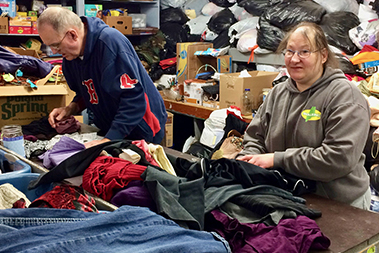
The Skills Thrift Store on Water Street in Skowhegan runs on Dill Center donations. “The people with intellectual disabilities sort them,” Tammy Worth, team leader at the Dill Center and thrift shop, said recently from her office at the back of the center. “They decide if it can be sold at the store. Things that can’t be sold, if they’re at least fifty percent cotton we cut them into rags.”
They sell those rags to customers including Huhtamaki, the Hight dealerships, and local garages and paint shops. Items that can’t be sold at the thrift store or turned into rags are made into thousand-pound bales and sold to a company that ships them overseas to third-world countries.
“Ninety percent of the stuff we receive gets reused,” Worth said. She noted that donations are up and of better quality than in recent years, but sales at the thrift shop are lagging,
“We need to get our sales up and make the store more profitable,” she said. “We need our store to at least break even. We are a nonprofit, but we still have to pay bills.”
Her biggest concern is the 25 people employed by Skills at the Dill Center and thrift store. “Unfortunately, people with developmental disabilities—there aren’t many jobs for them,” she said. “We’re struggling and fighting every day to keep these people employed because it’s the most important thing to them.”
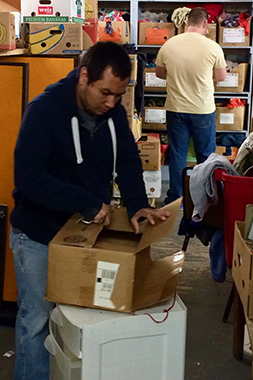
Worth explained that the majority of people with developmental disabilities are unable to experience rites of passage that most adults take for granted, like driving a car or getting married.
“The most normal thing that these people have is their job,” she said. “[It gives them] worth, a purpose. … If we ran program seven days a week, they would be here seven days a week. They hate snow days. If they’re sick, I really have to say, ‘You’ve got to stay home.’ Best employees you could ever have.”
Their jobs also provide a little bit of spending money for those on tight budgets. According to Worth, funding for the developmentally disabled is limited and can be difficult to obtain in Maine. For most of the Dill Center workers, their Skills earnings constitute their extra income beyond what they need to survive.
“What they earn here is what they get for extra, so they can go out to eat every other Friday on pay day and—we just had a semi-formal dance—so they could buy their corsages,” Worth said. “Work is very important.”
So too is the impact Skills has on the community. “If we know somebody needs help, we help them,” Worth said. “Somebody called me yesterday saying their granddaughter got dropped off on their doorstep and they didn’t have any clothes for her. I had a young man walk in last week who just got out of jail and had only the clothes he was wearing. He had sneakers on and no socks. He said, ‘I can’t get a job unless I have work boots.’ We found him work boots, we put a box together. He was in tears when he carried that box out of here. And for everybody here, for them to feel like they’re helping people—they just love that.”
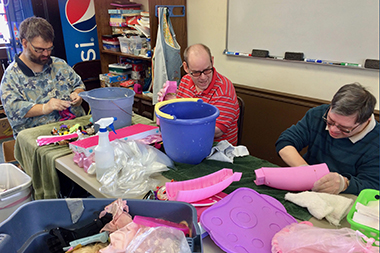
Kelly, the Dill Center and PCS program manager, says there is a misconception in society “that the people we support are just takers.” He said he wishes society could understand how much they give, too.
“They need the opportunity to give,” Worth added. She gestured beyond her office door to the workers cleaning donations, vacuuming, and sorting clothes. “The people who are out there—the biggest thing that people don’t think about is that they are people. They are people, just like us. They are us. They want everything that we have—they want to love, they want to help, they want to work. They want everything that everybody wants.”
The Skills Thrift Store is located at 78 Water Street in Skowhegan. Hours are Monday-Saturday 9 a.m.-5 p.m. For more information see the Skills website or visit them on Facebook.
